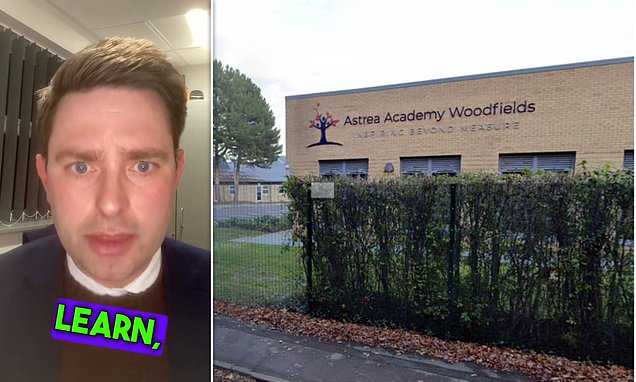
Accusations have emerged against a secondary school for utilizing what some perceive as ‘intrusive surveillance methods’ to address unauthorized absences during the term.
Recent reports indicate that school personnel visit the residences of absent students to confirm if families are away by noting signs such as full bins on collection days, undisturbed mail on doorsteps, parked vehicles in driveways, lights left on, and emissions from boiler flues observed over multiple days.
Astrea Academy Woodfields in Doncaster, South Yorkshire, defended these visits as a demonstration of concern for the welfare of absent students.
Principal David Scales discussed these monitoring practices in a video on X, shedding light on the issue of term-time vacations. He also exposed a deceptive strategy employed by certain parents who pretend a student is ill by impersonating staff from a doctor’s office when reporting absences to the school.
Mr. Scales expressed concern over the trend of families taking vacations during term time, especially leading up to Easter.
He stated, ‘Parents might claim illness, but noticeable signs like empty driveways, unmoved bins, and lack of activity at home over consecutive days prompt us to classify these cases as unauthorized holidays, subject to fines.’
Regarding the deceptive phone calls, he revealed instances where parents manipulated caller IDs to show ‘doctor’s surgery’ when communicating with the school.
‘These calls do not originate from medical professionals, and we are aware of this tactic, categorizing such incidents as unapproved absences,’ he emphasized.
Mr. Scales defended the home visits, stressing that they are carried out with care and a commitment to ensuring students’ attendance in school, a practice common among educational institutions nationwide.
He added, ‘While we maintain positive relationships with most parents, a minority choose to keep their children away from school without valid reasons. We have transparently informed families that, in addition to praising good attendance, we will address unauthorized absences.’
Illustrating the extent of the problem, he noted, ‘We share these cases to highlight the scale of the issue and firmly state that such conduct is unacceptable.’
Astrea Academy Trust reported that 92 students at Woodfields had registered at least one unauthorized absence this academic year, with 58 of these cases identified through home visits.
Fiona Campbell, district secretary of the National Education Union’s Doncaster branch, criticized Woodfields for what she viewed as public embarrassment of families and deterioration of positive parent-school relationships.
While recognizing the attendance difficulties faced by many local schools, she commented, ‘Other institutions abstain from intrusive surveillance methods and acknowledge the challenges parents face in arranging quality family time.’
Mr. Scales faced criticism following his appearance in the video on X, with allegations of potentially engaging in criminal harassment, unauthorized surveillance, and intrusive monitoring of students and families.
A spokesperson from the Department for Education advocated for a ‘support-first approach,’ endorsing schools and local authorities working with families to improve attendance.
The government’s recent announcement revealed increased fines for unauthorized school absences throughout England, commencing at £80 and rising to £160 if not paid within 21 days.
